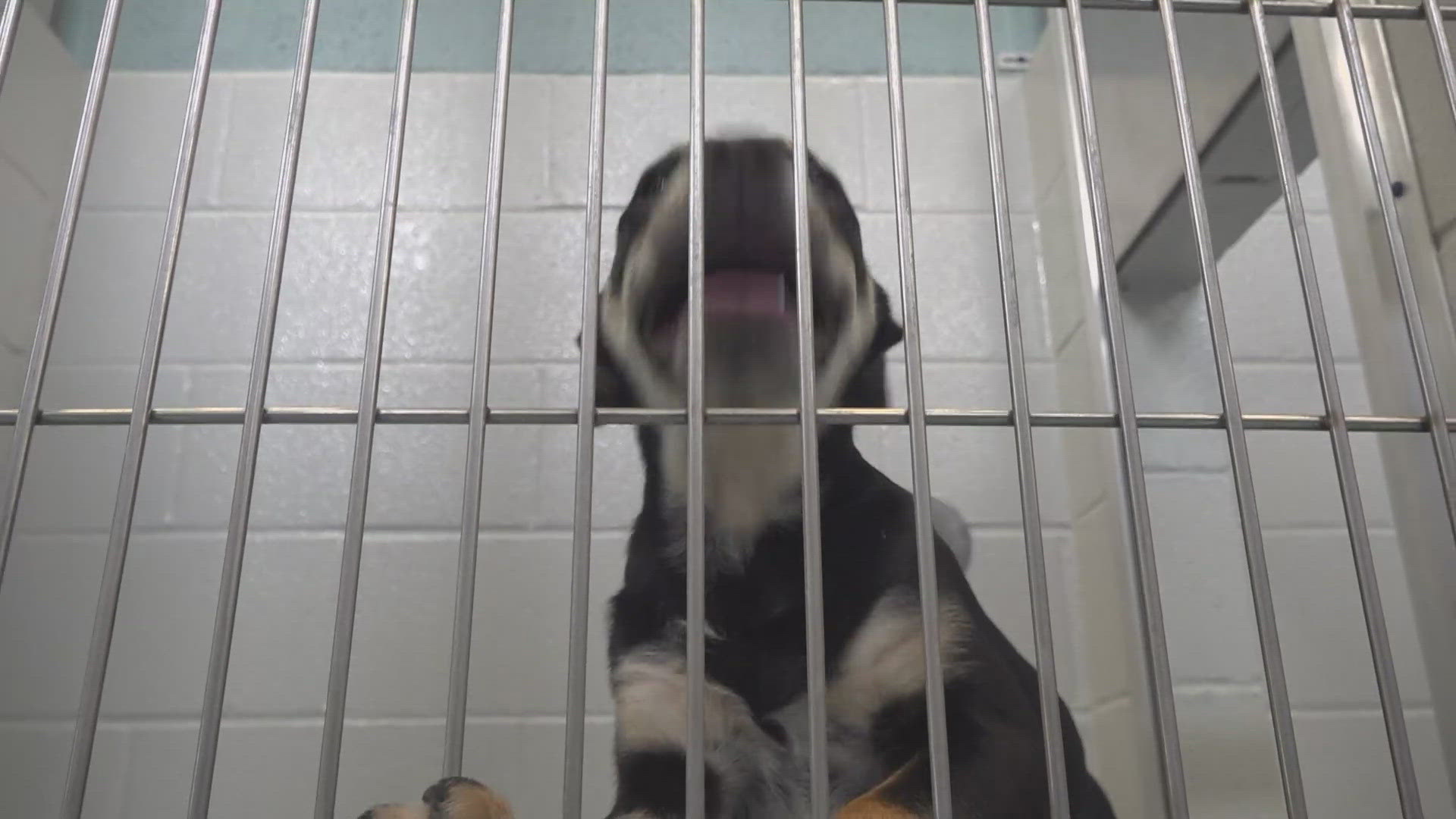GUILFORD COUNTY, N.C. — There is a surge in parvovirus cases in Guilford County.
It's a highly contagious and potentially deadly disease for dogs.
The Guilford County Animal Services Director, Jorge Ortega, said in the last two weeks there were 11 dogs with Parvo.
Typically staff will only see about one a month.
"Our concern or kind of the red flags is that we are seeing it very frequently, almost every day coming into the facility right now and it's an early season," said Ortega. "We're not into summer. It's usually a spring-summer virus, but we're seeing it early, and again, we're seeing it out in the community, meaning that dogs are coming into the shelter and testing positive for parvo immediately upon intake."
Ortega said it is very early to see an influx of cases.
He said some of the dogs are coming from an area in High Point.
Those living within a one-mile radius from Furlough Avenue to Vine Street, he urges to get your dogs looked at, to ensure they don't have the virus or spread it around.
"What we're concerned of is the virus entering our shelter system and then we're having to quarantine or having to euthanize a large number of animals," said Ortega. "What we're trying to do is do this preventative measure to make sure the community understands the importance of vaccinating their pets for Parvo, so if it does enter the shelter, we are also prepared."
Dr. Melinda Whitaker, the Guilford County Animal Services Medical Director and Chief Veterinarian, is warning dog owners to take precautions.
"Parvo is a GI virus," said Whitaker. "Signs and symptoms are vomiting and bloody diarrhea. Typically, the animals will also feel very puny. They have no energy. They don't want to move. They get dehydrated really fast, and those are the primary symptoms. "
Whitaker said the virus can be spread by your dog coming in contact with an infected dog, your dog sniffing or licking contaminated feces, or contaminated surfaces, like kennels, food, and water bowls.
Humans cannot get Parvo, however, people can spread it to other dogs through clothes, shoes, and other surfaces.
"The virus stays in the grass or on the sidewalk or on your shoes and then you can take it home on your shoes and if your pet is not vaccinated or you can take it home on your clothes if your pet is not vaccinated or doesn't have a good immune system if they get that virus in their mouth then they can get sick from it," said Whitaker. "When that happens a dog could go to the dog park and pick it up there if they're not vaccinated if there was a a sick dog there."
Puppies are most susceptible, but the virus can also affect unvaccinated dogs of any age.
What you need to watch out for is vomiting, lack of appetite, fever, abdominal pain, and bloating.
It can happen quickly, as deaths occur within 48 to 72 hours of the initial signs appearing.
"It is dangerous for dogs because untreated, they will die, they die of dehydration from the vomiting and diarrhea," said Whitaker.
The shelter is isolating infected dogs to reduce the spread and Whitaker said vaccination is the best way to avoid the virus.

